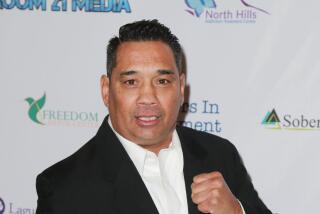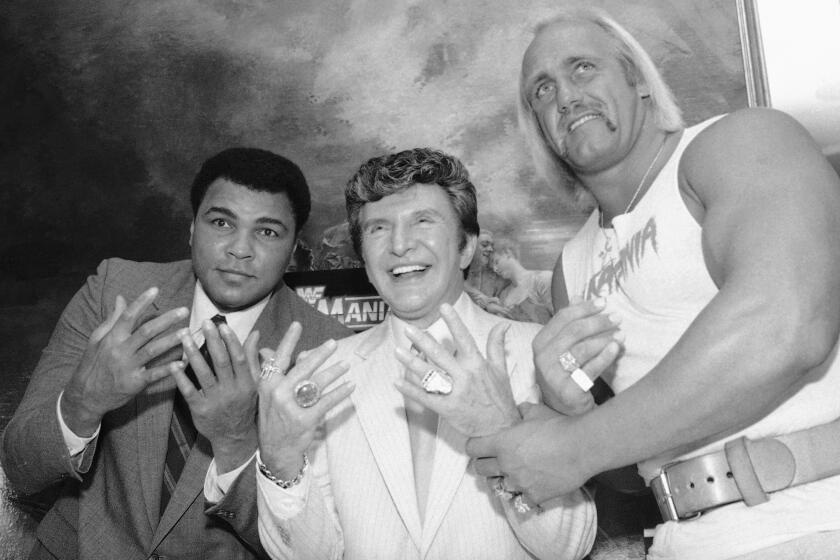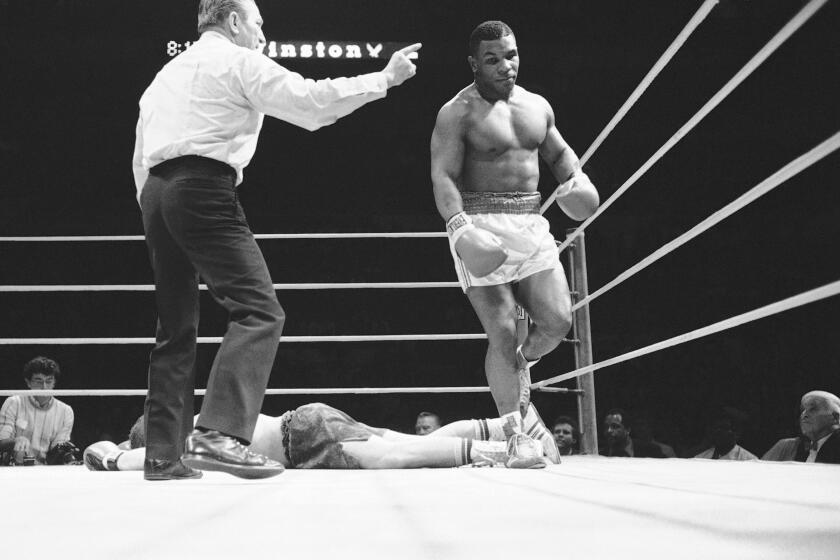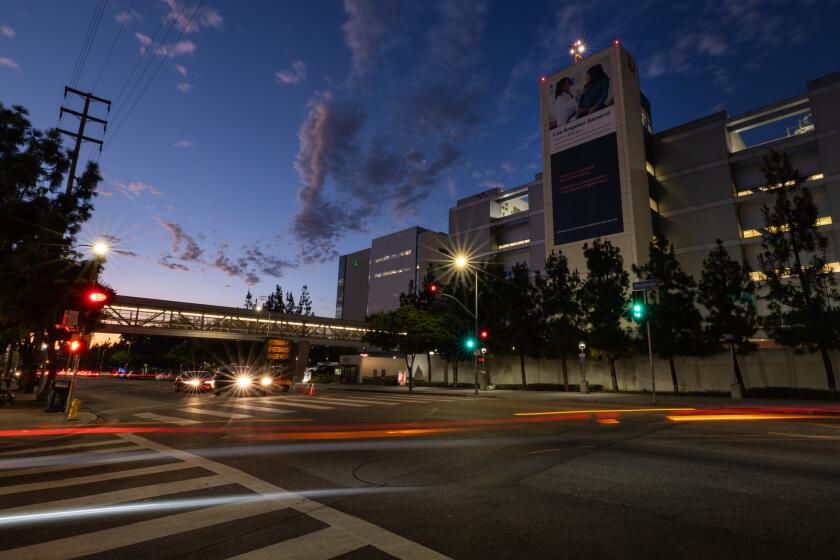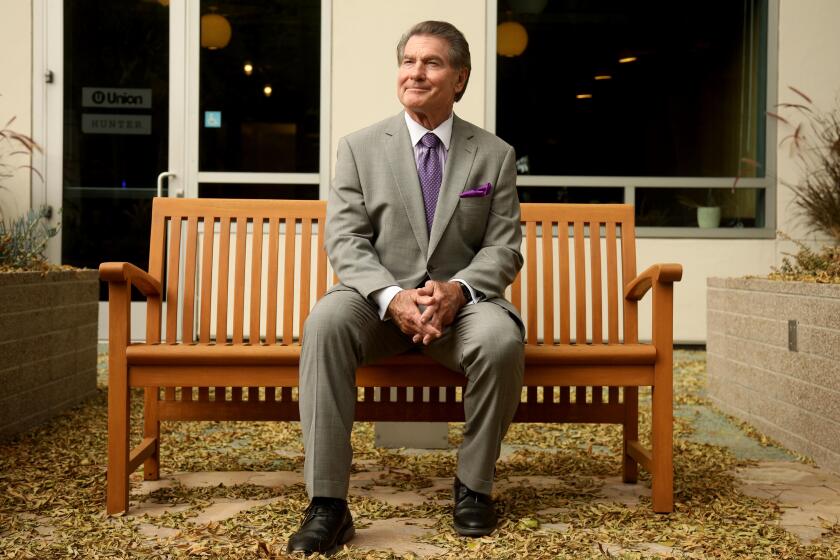After Times investigation, retired boxers finally getting what they’re owed from California
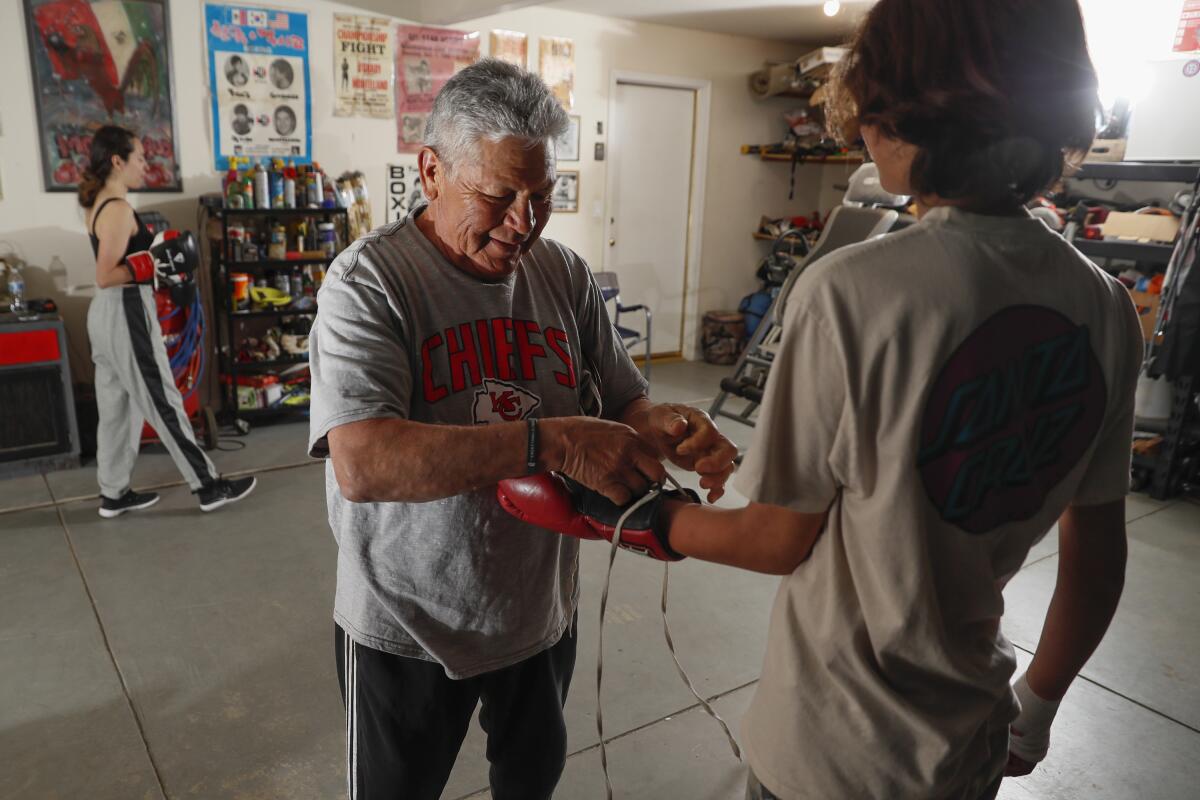
California’s little-known retirement plan for boxers paid benefits to three dozen fighters this year, a record number since the program began 40 years ago, but still only a small fraction of those owed money by the state.
The increased payouts from the California Professional Boxers’ Pension Plan follow The Times’ investigation in May that found the state failed to notify boxers about their benefits, resulting in most retirement accounts going unclaimed each year.
In interviews with dozens of boxers, most told The Times they couldn’t recall ever receiving information about their accounts during their careers and criticized the state for not making more of an effort to find them.
The California State Athletic Commission, which administers the pension, vowed to step up outreach to boxers about the plan, which was created to provide financial support for vulnerable fighters who in their later years face the challenges of aging, battered bodies.
The commission, which has on average paid fewer than 10 boxers a year, has cut 33 checks for a total of $531,000 so far this year. That’s the highest dollar total paid to boxers under the plan since the commission first began making pension payments in 1999, according to The Times’ analysis. Six additional boxers are in the process of being paid a total of $61,000.
Even with the increased payouts this year, fewer than 1 in 4 boxers who could claim their nest egg did so, according to The Times’ analysis of commission documents.
Boxers contacted by The Times said they were unaware that California has a 40-year-old pension program or that they are its beneficiaries.
“I think the biggest thing about this program is getting the awareness out that it exists,” said Andy Foster, the athletic commission’s executive officer.
Currently, 165 retired boxers are eligible to be paid their pensions — which are due to fighters when they turn 50 — with many of them having been owed the money for 10 to 20 years. Last year, roughly 6% of boxers due a pension were paid, The Times’ investigation found.
Foster said the commission has since brought in investigators to find contact information for beneficiaries and in June partnered with Mexico to locate boxers there.
“The boxers are starting to talk about it,” Foster said. “The generation of boxers that are getting near 50, I think we’re going to have a lot higher success rate of people coming forward just because they’re out there talking about it.”
At least a quarter of the 200 boxers currently owed pensions in California had a last known address in Mexico. Now, California is partnering with Mexico to find them.
The plan, which is funded through an 88 cent per ticket fee, was created in 1982 to provide a “modicum of financial security” to retired fighters, according to the state statute. In October, Gov. Gavin Newsom approved a bill to create a pension program for mixed martial arts fighters modeled after the one for boxers, which will also be administered by the athletic commission.
The boxers’ plan offers pensions to any professional boxer, regardless of residency, who logged at least 75 scheduled rounds in California with no more than a three-year break. Pension amounts are determined by how many rounds a boxer fought and the size of their purses. Boxers can also claim pensions early for medical or educational purposes, and families of fighters who have died are eligible for the benefits on their behalf.
“There are so many people they owe money to,” said retired Bakersfield lightweight Gonzalo Montellano, 66, who recently received a nearly $20,000 check for a pension he did not know he had until contacted by The Times.
Montellano first qualified for the lump-sum payment 16 years ago.
“I mean it’s great for California to have this for fighters, but in a way it’s useless because no one knew,” said Montellano, who fought professionally for eight years, tallying a 35-3-2 record with 20 knockouts.
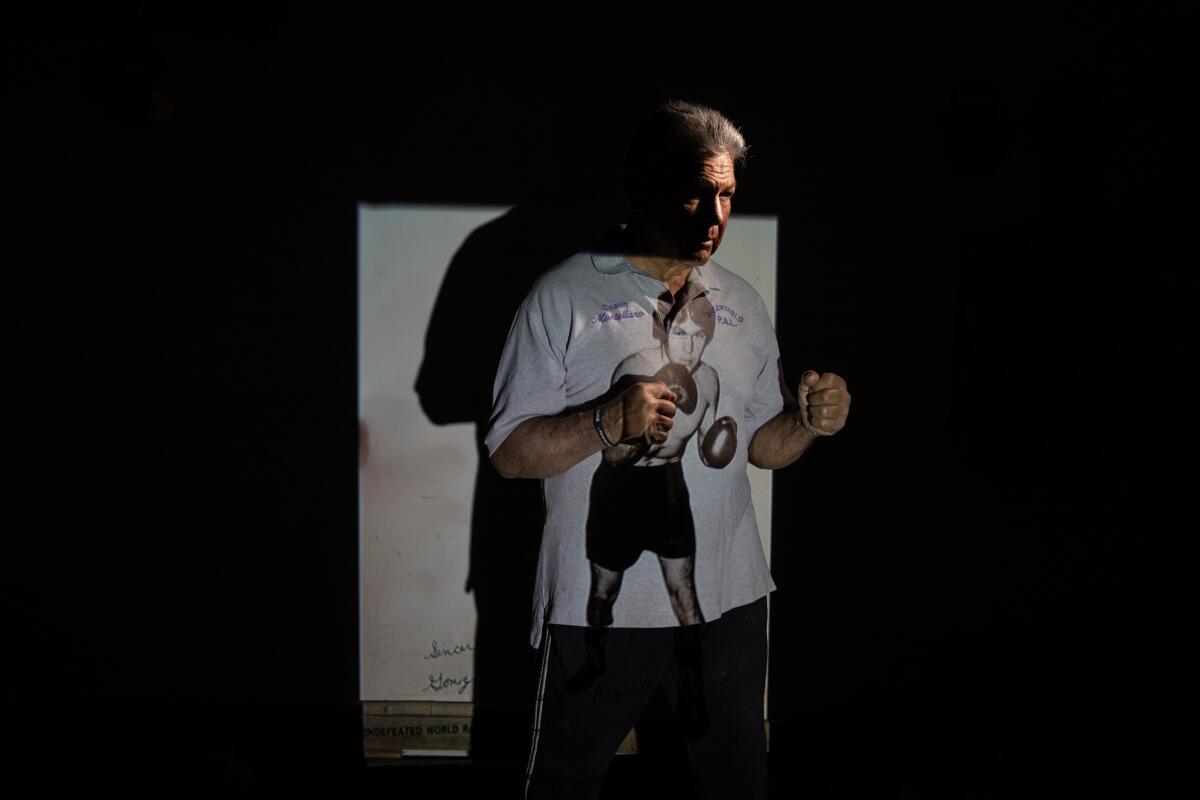
To date, the plan has paid 265 retired fighters a total of $4.5 million, with most claims coming within the last decade. The average pension is a one-time $17,000 payment. The highest single payment in 2022 went to “Sugar” Shane Mosley, a powerhouse fighter from Pomona with world title belts in three weight classes. Mosley’s pension payout was $203,000, according to records obtained through the Public Records Act.
Last month, retired Los Angeles-area light heavyweight Milford Kemp received a check — nearly two decades after he was eligible for the nearly $8,880 that California set aside for him.
Kemp, 69, who was known as the “Ballet Boxer” for the way he infused the geometric principles of both into his fighting, said no one ever told him he had the retirement account. It went unclaimed as he struggled at times to find subsidized government housing and warm clothes where he lives in Edmonton, Canada.
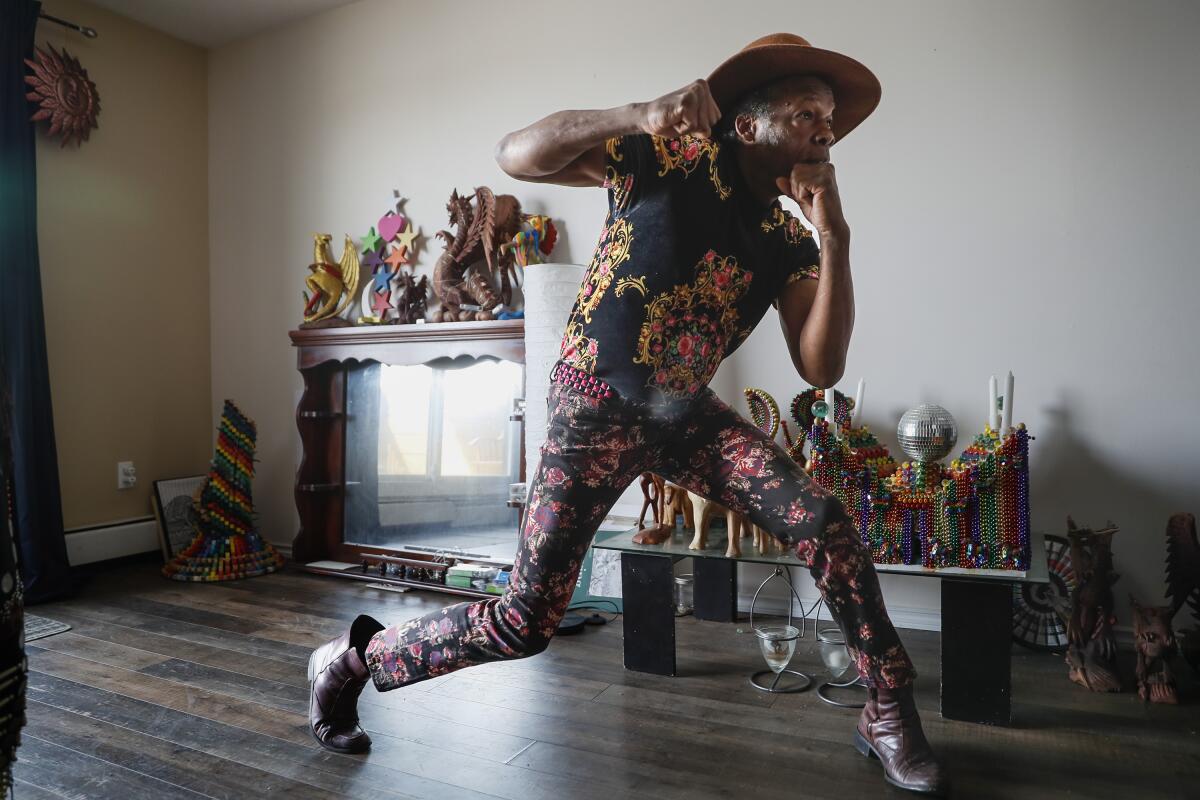
Earlier this year, speaking from his sparsely decorated apartment where he sleeps on a discarded massage table, the former fighter said it is money he desperately needs and is grateful to receive.
Following The Times’ reporting, the commission said it will begin sending annual statements to all vested boxers for whom it has addresses beginning next year, a move that pension experts said is a minimum standard for most retirement plans. The athletic commission previously waited until a boxer turned 50 before attempting to contact them for the first time. By then, the vast majority of addresses were no longer current.
The names of those who can currently file for a pension are posted on the commission’s website.
Supporters of the pension are lobbying lawmakers to increase the ticket fee, and the commission is also considering a specialty license plate as a source of revenue.
“They are late, but at least they are doing something,” said Bob Fellmeth, the architect of the boxers’ pension when he was chair of the athletic commission in 1981.
Fellmeth said he’s equally gratified to hear the commission is actively reaching out to boxers owed pensions.
“We need more of that,” he added.
California owes benefits to about 200 boxers through the California Professional Boxers’ Pension Fund. How to claim a California boxers’ pension.
There is a cost to boxers when pensions are paid years or decades late. Amounts owed to boxers do not gain interest or adjust for inflation once a fighter is eligible at age 50, meaning the value depreciates over time.
“Whatever they give me now is not what it was worth 10 years ago,” said Ramzi Hassan, 61, a San Diego retired light heavyweight who recently was paid $18,600.
Prior to a call from the athletic commission a few months ago, Hassan said he was not familiar with the pension program, which he qualified for during his career in the 1980s and 1990s. He was first eligible to apply for his pension in 2012.
Hassan said he’s grateful for the unexpected money, but feels the program can do better.
“There was never any communication,” he said.
More to Read
Start your day right
Sign up for Essential California for news, features and recommendations from the L.A. Times and beyond in your inbox six days a week.
You may occasionally receive promotional content from the Los Angeles Times.



